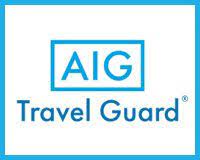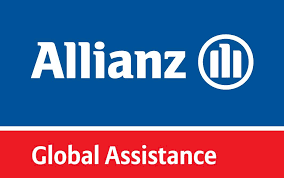International Health Insurance Plans
International Health Insurance Plans: An Overview
As an independent insurance agent at Blake Insurance Group, I understand that navigating the complexities of health insurance can be daunting, especially when it comes to international travel or living abroad. Whether you’re planning a short-term trip, relocating for work, or embarking on an extended adventure, having the right health insurance coverage is crucial for your peace of mind and financial security.
International health insurance plans are designed to provide comprehensive medical coverage beyond your home country’s borders, ensuring you have access to quality healthcare no matter where you are. In this article, we’ll explore the various types of international health insurance plans available, key features to look for, and how to choose the right plan to meet your unique needs. Our goal is to equip you with the knowledge and confidence to make informed decisions about your health coverage so you can focus on enjoying your international experiences without worrying about unexpected medical expenses.
Types of International Health Insurance Plans
Short-term vs. Long-term Plans
When considering international health insurance, it’s essential to understand the differences between short-term and long-term plans, as each serves different needs and scenarios.
Short-term Plans
Short-term international health insurance plans are designed to provide coverage for individuals or families traveling or living abroad for less than a year. These plans are ideal for:
– **Travelers on extended vacations**: If you’re planning a trip that lasts several months, a short-term plan can cover unexpected medical emergencies.

Blake Nwosu
Owner & Principal Agent
Expertise: All personal and commercial line insurance, including auto, home, business, health, and life insurance.
License: 16117464
 – **Students studying abroad**: Short-term plans can provide coverage for a semester or academic year.
– **Students studying abroad**: Short-term plans can provide coverage for a semester or academic year.
– **Business travelers**: Professionals on temporary assignments can benefit from short-term health insurance to ensure they are covered during their stay.
Short-term plans typically cover emergency medical treatment, hospital stays, and sometimes outpatient care. However, they often do not cover pre-existing conditions, maternity care, or routine check-ups.
Long-term Plans
Long-term international health insurance plans are designed for expatriates, long-term travelers, and individuals living abroad for extended periods (over one year). These plans offer comprehensive coverage, including:
– **Pre-existing conditions**: Many long-term plans cover pre-existing conditions after a waiting period.
– **Maternity care**: Coverage for pregnancy and childbirth is often included.
– **Preventative care**: Routine check-ups and wellness visits are typically covered.
Long-term plans are annually renewable, providing continuous coverage without the need to reapply each year. They are suitable for:
– **Expats and their families**: Individuals and families relocating abroad for work or retirement.
– **International students**: Those pursuing long-term studies in a foreign country.
– **Frequent travelers**: Individuals who spend significant time in multiple countries yearly.
Individual vs. Family Plans
Choosing between individual and family plans depends on your specific needs and circumstances.
Individual Plans
Individual international health insurance plans are tailored to cover a single person. These plans offer flexibility and can be customized to meet the individual’s health needs and budget. They are ideal for:
– **Solo travelers**: Individuals traveling alone for leisure or business.
– **Single expatriates**: Those living abroad without dependents.
Individual plans can be more affordable than family plans and allow for a high degree of customization, including coverage areas and optional benefits such as dental and vision care.
Family Plans
Family international health insurance plans cover all family members under a single policy. These plans ensure that spouses and children receive medical care while living or traveling abroad. Benefits often include:
– **Comprehensive coverage**: Medical care for all family members, including pediatric care and maternity services.
– **Cost savings**: Family plans can be more cost-effective than purchasing individual plans for each family member.
Family plans are suitable for:
– **Families relocating abroad**: Ensuring all family members are covered during the move and while living in a new country.
– **Traveling families**: Families on extended vacations or temporary assignments abroad.
Group Plans
Group international health insurance plans are designed for businesses, organizations, and other groups with members living or traveling abroad. These plans offer several advantages:
– **Cost savings**: Group plans can be more affordable due to the shared risk among members.
– **Comprehensive coverage**: Plans often include extensive benefits such as emergency evacuation, maternity care, and coverage for pre-existing conditions.
– **Streamlined administration**: Simplified billing and management for employers or group administrators.
Group plans are ideal for:
– **Corporations with international employees**: Providing health coverage for employees and their families working abroad.
– **Non-profit organizations**: Ensuring volunteers and staff members are covered during international assignments.
– **Educational institutions**: Covering students and faculty participating in study abroad programs.
Cost Comparison Table for International Health Insurance Plans
| Provider | Plan | Monthly Premium | Annual Premium | Deductible | Coverage | Key Features |
|---|---|---|---|---|---|---|
| Cigna Global | Silver | $150 - $460 | $1,800 - $5,520 | $0 - $10,000 | $1,000,000 annual limit | Customizable plans, 24/7 customer support, available in 200+ countries |
| GeoBlue | Xplorer Essential | $200 - $500 | $2,400 - $6,000 | $250 - $5,000 | $1,000,000 annual limit | Extensive provider network, emergency medical evacuation, and repatriation |
| Allianz Care | Individual | $200 - $900 | $2,400 - $10,800 | $500 - $5,000 | $1,500,000 annual limit | Comprehensive coverage, including outpatient care, maternity, and dental |
| AXA Global | Foundation | $250 - $600 | $3,000 - $7,200 | $500 - $2,500 | $1,000,000 annual limit | Fast claims processing, 24/7 support, coverage in 190+ countries |
| IMG Global | Global Medical | $100 - $400 | $1,200 - $4,800 | $250 - $10,000 | $1,000,000 annual limit | Flexible plans, including short-term and long-term options, emergency services |
| Bupa Global | Worldwide Health | $300 - $700 | $3,600 - $8,400 | $500 - $2,000 | Unlimited annual limit | High coverage limits, extensive global network, comprehensive wellness programs |
| William Russell | Elite | $250 - $550 | $3,000 - $6,600 | $500 - $5,000 | $1,500,000 annual limit | Tailored plans for expats, maternity cover, mental health services |
| Now Health | WorldCare Essential | $200 - $600 | $2,400 - $7,200 | $500 - $2,500 | $1,000,000 annual limit | Simple claims process, 24/7 support, extensive coverage options |
| April International | MyHealth International | $150 - $500 | $1,800 - $6,000 | $250 - $5,000 | $1,000,000 annual limit | Customizable plans, telemedicine services, maternity and dental coverage |
| VUMI | Global Flex VIP | $300 - $800 | $3,600 - $9,600 | $500 - $5,000 | $3,000,000 - $5,000,000 annual limit | High coverage limits, direct billing, flexible coverage options |
Cost of International Health Insurance
Various factors, including coverage limits, deductibles, and other aspects of the plan, influence the cost of international health insurance. The annual cost can range from as low as $500 for a plan with limited benefits to as much as $8,000 for a comprehensive plan.
Several factors can influence the cost of international health insurance:
**Coverage Limits**: The coverage limit of a plan refers to the maximum amount the insurance company will pay for covered services. Higher coverage limits typically result in higher premiums.
**Deductibles**: A deductible is the amount you pay for covered health care services before your insurance plan starts to pay. Plans with higher deductibles usually have lower monthly premiums.
**Copays and Coinsurance**: Copays are fixed amounts you pay for a covered health care service, while coinsurance is your share of the costs of a covered health care service calculated as a percent of the allowed amount. Plans with lower copays and coinsurance typically have higher premiums.
**Destination**: The cost of health care in the destination country can significantly impact the cost of international health insurance. Countries with higher healthcare costs generally result in higher insurance premiums.
**Age**: Older individuals are more likely to have medical conditions that impact travel plans, increasing the price of insurance.
**Pre-existing Conditions**: Insurance companies may charge extra to cover pre-existing conditions or not cover them at all.
**Out-of-Pocket Costs**: Lower premium plans often have fewer benefits and higher out-of-pocket costs, while more expensive premium plans have more comprehensive coverage and lower out-of-pocket costs.
**Healthcare Costs and Medical Inflation**: The cost of healthcare services and the rate of medical inflation can also impact the cost of international health insurance premiums.
When evaluating the cost of an international health insurance plan, it’s essential to consider not only the premiums but also the deductibles, copays, and coinsurance. These factors can significantly impact the overall cost of health care while abroad.
Key Features of International Health Insurance
Emergency Medical Coverage
Emergency medical coverage is one of the most critical components of international health insurance. This feature ensures that you receive immediate medical attention in case of sudden illness or injury abroad. Key aspects include:
Medical Evacuations: If you fall seriously ill or get injured in a location where adequate medical facilities are not available, your insurance can cover the cost of transporting you to the nearest suitable medical facility. This can involve air ambulances, which can be extremely costly without insurance.
– **Repatriation**: In the unfortunate event of death abroad, repatriation coverage ensures that your remains are transported back to your home country. This process can be complex and expensive, making this coverage invaluable.
Routine Medical Care
Routine medical care is another essential feature of international health insurance, especially for those living abroad for extended periods. This coverage includes:
– **Regular Check-ups**: Coverage for annual physical exams and routine health screenings to monitor your overall health and prevent potential illnesses.
– **Non-emergency Treatments**: Access to outpatient services for non-urgent medical issues, such as consultations with general practitioners or specialists, diagnostic tests, and minor procedures.
Specialized Care
International health insurance plans often provide coverage for specialized care, which is crucial for individuals with specific health needs. This includes:
– **Chronic Conditions**: Management and treatment of chronic illnesses such as diabetes, hypertension, and asthma. This ensures that you can continue receiving necessary medications and treatments without interruption.
– **Maternity Care**: Comprehensive maternity coverage, including prenatal and postnatal care, delivery, and newborn care. This is particularly important for expatriates planning to start or expand their families while living abroad.
– **Mental Health Services**: Access to mental health professionals, including psychologists and psychiatrists, for conditions such as depression, anxiety, and stress-related disorders. This coverage can include therapy sessions, counseling, and medications.
Coverage for Pre-existing Conditions
Pre-existing conditions are medical conditions that existed before you purchased your insurance policy. These conditions can include chronic illnesses, injuries, or other medical conditions that require ongoing treatment. Regarding international health insurance plans, coverage for pre-existing conditions can vary depending on the provider and the plan.
Pre-existing conditions are typically excluded from coverage in international health insurance plans. However, some providers may grant coverage for pre-existing conditions after a specific period or if you have “prior creditable coverage,” meaning another insurance plan in place when you apply for your new international plan. Prior creditable coverage is determined by the insurer, so be sure to inquire at the time of your application.
Regarding travel insurance plans, coverage for pre-existing conditions may be available if you purchase your plan within a specified time frame. For example, Travel Insured offers coverage for pre-existing medical conditions if you purchase your travel protection plan no longer than 21 days after your trip deposit date. Allianz Global Assistance offers the OneTrip Prime Plan, which includes coverage for covered pre-existing medical conditions.
Travel Vaccinations and Health Precautions
When traveling abroad, it’s important to take precautions to protect your health. This can include getting travel vaccinations, taking medication to prevent malaria or other diseases, and practicing good hygiene. International health insurance plans may provide coverage for preventive measures such as vaccinations, depending on the plan.
Regarding travel insurance plans, coverage for preventive measures may be available if you purchase your plan within a specified time frame. For example, Travel Insured offers coverage for Trip Cancellation/Interruption and Accident and sickness Medical Expenses due to a pre-existing medical condition if you purchase your travel protection plan no longer than 21 days after your trip deposit date. Allianz Global Assistance offers the OneTrip Prime Plan, which includes coverage for emergency medical and dental care, emergency medical transportation, and more.
It’s important to note that coverage for preventive measures may vary depending on the provider and the plan. Read the policy carefully and ask your insurance agent if you have any questions. Additionally, it’s important to consult with your healthcare provider before traveling abroad to determine what vaccinations or other preventive measures are recommended for your destination.
Emergency Evacuation and Repatriation: The Importance of These Features in a Plan
Emergency evacuation and repatriation are essential when choosing an international health insurance plan. Here’s why these features are essential:
**Emergency Evacuation**: In a medical emergency or crisis while traveling abroad, emergency evacuation coverage ensures that you can be transported to a medical facility that can provide appropriate care. This is particularly crucial in remote or underdeveloped areas with limited access to quality healthcare. Emergency evacuation coverage typically includes expenses for transportation to the nearest qualified medical facility, reasonable travel and accommodation resulting from the evacuation, and sometimes the cost of returning to your home country or the country where the evacuation occurred.
**Repatriation**: Repatriation coverage refers to returning a person’s remains to their home country in the unfortunate event of death while abroad. This coverage ensures that the necessary arrangements and expenses for repatriation are taken care of, relieving the burden on family members during difficult times.
The importance of these features can be summarized as follows:
– Access to better medical care: Emergency evacuation coverage ensures that you can be transported to a medical facility that can provide the appropriate care for your condition, especially in areas with limited healthcare resources.
– Financial protection: Emergency evacuation and repatriation can be costly, but having insurance coverage for these services can protect you from significant financial burdens.
– Peace of mind: Knowing that you have coverage for emergency evacuation and repatriation provides peace of mind when traveling abroad, allowing you to focus on enjoying your trip without worrying about potential medical emergencies.
It’s important to carefully review the terms and conditions of your international health insurance plan to understand the specific coverage and limitations for emergency evacuation and repatriation. Different insurance providers may offer varying coverage levels, so choosing a plan that meets your specific needs and travel destinations is crucial.
Comparing Domestic vs. International Health Insurance: Key Differences and Considerations
Domestic vs. International Health Insurance: Key Differences and Considerations
| Aspect | Domestic Health Insurance | International Health Insurance |
|---|---|---|
| Coverage Area | Limited to the country of residence | Covers multiple countries or worldwide |
| Duration of Coverage | Typically annual, renewable | Annual, renewable; can be tailored for short- or long-term stays |
| Medical Services Covered | Varies by plan; generally includes inpatient, outpatient, and emergency care | Comprehensive coverage including inpatient, outpatient, emergency care, and often additional services like medical evacuation and repatriation |
| Cost | Generally lower premiums; costs vary by country and plan | Higher premiums reflecting broader coverage and additional benefits |
| Pre-existing Conditions | Coverage varies; may exclude or charge higher premiums | Often covered after a waiting period or with additional premium |
| Legal Requirements | May be required by law in some countries | Often required for visa or residency permits in many countries |
| Flexibility | Limited to local healthcare providers | Access to a global network of healthcare providers; flexible plans tailored to expatriates |
| Additional Benefits | May include wellness programs, dental, and vision care | Includes additional benefits like medical evacuation, repatriation, and sometimes travel-related coverage |
Here are some travel health insurance companies to consider when planning your next trip:
International Medical Group
 International Medical Group (IMG) provides travel medical insurance plans to cover medical expenses, emergency medical evacuation, and repatriation for individuals traveling outside their home country. The benefits of IMG plans include access to a global network of healthcare providers, 24/7 customer service, and coverage for unexpected medical emergencies while abroad. These plans are particularly beneficial for international vacationers, business travelers, and students studying abroad.
International Medical Group (IMG) provides travel medical insurance plans to cover medical expenses, emergency medical evacuation, and repatriation for individuals traveling outside their home country. The benefits of IMG plans include access to a global network of healthcare providers, 24/7 customer service, and coverage for unexpected medical emergencies while abroad. These plans are particularly beneficial for international vacationers, business travelers, and students studying abroad.
The costs associated with IMG plans can vary based on the coverage level chosen, the trip duration, and the insured’s age. For example, emergency medical evacuation coverage can be substantial, with costs for evacuation from various countries ranging from $15,000 to over $200,000 depending on the location and medical condition. However, purchasing a plan with IMG can mitigate these potential expenses, providing peace of mind and financial protection against unforeseen medical costs during international travel. Benefits are subject to deductibles, coinsurance, and specific insurance contract terms and conditions.
Seven Corners
 Seven Corners offers a variety of travel insurance plans, including travel medical insurance, trip cancellation insurance, and more. Their travel medical insurance plans cover medical expenses, evacuation, and repatriation. The cost of these plans can vary based on factors such as the trip’s duration, the insured’s age, and the chosen coverage level. For instance, the RoundTrip Basic plan costs $197 and offers 100% trip cancellation for trips up to $30,000.
Seven Corners offers a variety of travel insurance plans, including travel medical insurance, trip cancellation insurance, and more. Their travel medical insurance plans cover medical expenses, evacuation, and repatriation. The cost of these plans can vary based on factors such as the trip’s duration, the insured’s age, and the chosen coverage level. For instance, the RoundTrip Basic plan costs $197 and offers 100% trip cancellation for trips up to $30,000.
The benefits of Seven Corners’ plans include high limits of medical coverage, protection for baggage, and 24/7 multilingual assistance services. These plans can benefit travelers seeking financial protection against unexpected medical expenses and other travel-related emergencies. However, it’s important to note that the benefits are subject to specific terms and conditions of the insurance contract.
TravelSafe Insurance
 TravelSafe Insurance offers budget-friendly travel medical insurance plans covering emergencies, unexpected illnesses, and non-medical emergency evacuations. Their plans start at $10 and increase based on your age and trip cost. The benefits of TravelSafe’s plans include high coverage limits for emergency medical evacuation, with the Basic plan covering up to $100,000 and the Classic plan increasing to $1,000,000.
TravelSafe Insurance offers budget-friendly travel medical insurance plans covering emergencies, unexpected illnesses, and non-medical emergency evacuations. Their plans start at $10 and increase based on your age and trip cost. The benefits of TravelSafe’s plans include high coverage limits for emergency medical evacuation, with the Basic plan covering up to $100,000 and the Classic plan increasing to $1,000,000.
These plans can provide financial protection against unexpected medical expenses and other travel-related emergencies. However, the benefits are subject to specific terms and conditions of the insurance contract. The cost of these plans can vary significantly based on the chosen coverage level, the duration of the trip, and the insured’s age.
GeoBlue

GeoBlue offers international medical insurance plans, including global access to Blue Cross Blue Shield Travel health insurance coverage. Their plans cover medical expenses, emergency medical evacuation, and repatriation. Costs vary based on age, trip length, and coverage level. For example, medical evacuation from remote locations can cost up to $100,000 or more.
Benefits include 24/7 customer support, cashless appointments, and access to trusted healthcare providers. Plan options cater to different needs, with coverage limits ranging from $50,000 to $1 million for medical expenses and up to $500,000 for medical evacuation. Deductibles can range from $0 to $500, allowing for customization of coverage and cost.
AIG Travel Guard
 AIG Travel Guard offers a variety of travel insurance plans, including travel medical insurance, trip cancellation insurance, and more. Their travel medical insurance plans cover medical expenses, emergency medical evacuation, and repatriation. The cost of AIG Travel Guard insurance is generally about 5 to 7% of the total trip cost, which can be a small price to pay to protect your trip investment.
AIG Travel Guard offers a variety of travel insurance plans, including travel medical insurance, trip cancellation insurance, and more. Their travel medical insurance plans cover medical expenses, emergency medical evacuation, and repatriation. The cost of AIG Travel Guard insurance is generally about 5 to 7% of the total trip cost, which can be a small price to pay to protect your trip investment.
The benefits of their plans include 24/7 travel assistance services, coverage for medical expenses, trip interruption, lost or delayed baggage, and medical evacuations. Coverage levels and costs can vary based on age, trip length, and the number of people on the policy. Specific plan options, like the MedEvac Plan, offer evacuation coverage for trips up to 365 days in length. Benefits are subject to the terms and conditions of the insurance contract.
Allianz Global Assistance
 Allianz Global Assistance offers a variety of travel insurance plans that include coverage for emergency medical and dental care, emergency medical transportation, and more. Their plans start as low as $50 and can go up to $228 for the OneTrip Premier plan.
Allianz Global Assistance offers a variety of travel insurance plans that include coverage for emergency medical and dental care, emergency medical transportation, and more. Their plans start as low as $50 and can go up to $228 for the OneTrip Premier plan.
The cost varies based on age, trip length, and coverage level. Benefits include 24/7 customer service, travel concierge services, and coverage for unforeseen events like pregnancy complications. They also offer annual plans that can cover all your trips for a year, providing a cost-effective option for frequent travelers. However, benefits are subject to the terms and conditions of the insurance contract.
Frequently Asked Questions (FAQs) about International Health Insurance
What is International Health Insurance?
International health insurance provides medical coverage for individuals and families living or traveling outside their home country. It covers a range of medical services, including emergency care, routine check-ups, and specialized treatments.
Why do I need International Health Insurance?
Domestic health insurance plans often do not provide adequate coverage abroad. International health insurance ensures you have access to quality healthcare and financial protection against medical emergencies, routine care, and other health-related expenses while overseas.
What does International Health Insurance cover?
Coverage can vary by plan, but typically includes:
- Emergency Medical Coverage: Including medical evacuations and repatriation.
- Routine Medical Care: Coverage for regular check-ups and non-emergency treatments.
- Specialized Care: Coverage for chronic conditions, maternity, and mental health services.
- Prescription Drugs: Coverage for medications prescribed by a doctor.
- Preventive Care: Vaccinations and wellness check-ups.
How much does International Health Insurance cost?
The cost of international health insurance varies based on factors such as age, coverage area, plan type, and health status. On average, premiums can range from $200 to $900 per month, with annual costs between $2,400 and $10,800.
Can I use my domestic health insurance abroad?
Most domestic health insurance plans offer limited or no coverage outside your home country. It is advisable to purchase international health insurance to ensure comprehensive coverage while abroad.
Are pre-existing conditions covered?
Coverage for pre-existing conditions varies by plan. Some plans may cover pre-existing conditions after a waiting period or with an additional premium. It is important to check the specific terms of your policy.
How do I choose the right International Health Insurance plan?
Consider the following factors when choosing a plan:
- Coverage Area: Ensure the plan covers the countries you will be visiting or living in.
- Medical Needs: Evaluate your healthcare needs, including any pre-existing conditions or specialized care requirements.
- Budget: Compare premiums, deductibles, and out-of-pocket costs to find a plan that fits your budget.
- Provider Network: Check if the plan has a network of healthcare providers in your destination.
How do I file a claim?
Most international health insurance providers have a straightforward claims process. Typically, you will need to:
- Obtain a claim form from your insurance provider.
- Complete the form and attach any required documentation, such as medical bills and receipts.
- Submit the claim form and documentation to your insurance provider for processing.
Can I get coverage for my family?
Yes, many international health insurance plans offer family coverage options. These plans provide coverage for spouses and dependents, ensuring the entire family is protected while abroad.
What happens if I need emergency medical evacuation?
International health insurance plans often include coverage for emergency medical evacuations. If you require evacuation due to a medical emergency, your insurance provider will arrange and cover the cost of transportation to the nearest suitable medical facility.
How do I find a doctor while abroad?
Most international health insurance providers offer assistance in finding a doctor or medical facility abroad. You can contact the assistance number on your insurance card or use the provider's online portal to locate healthcare providers in your area.
Can I extend my coverage if I decide to stay abroad longer?
Yes, many international health insurance plans are flexible and can be extended if you decide to stay abroad longer than initially planned. Contact your insurance provider to discuss extension options and any additional costs.
What should I do if I lose my insurance card?
If you lose your insurance card, contact your insurance provider immediately. They can provide you with a replacement card or a digital copy to use until a new card is issued.


